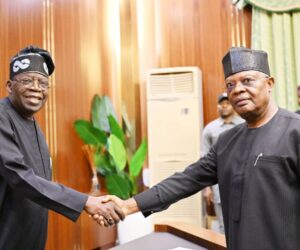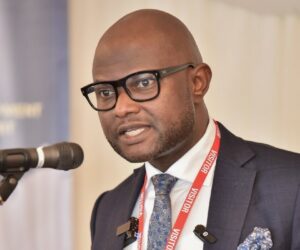Key factors driving Africa’s transformation took centre stage at the Africa Future Leadership Conference and Awards, recently held in Lagos.
The event, which was the 10th in its series, was held under the theme, ‘Towards a Prosperous Africa: Leveraging Leadership, Technology and Innovation.’
Speaking at the conference, which had in attendance delegates from across Africa, the convener of the Africa Future Leadership Conference and Awards, Mark Idiahi, said the event began a decade ago and that it aimed to spotlight Africa’s potential and retell its story through the lens of leadership and innovation.
According to Idiahi, who is also the publisher of the Africa Future Leadership Magazine, Africa stands today at a critical crossroads.
“Our population is expanding, our economies are evolving, and our citizens are demanding a new era of accountability, innovation, and growth,” he said.
On the theme of the conference and the awards, he said: “I believe there is a nexus between leadership and innovation. Leadership plays a very significant role, whether you are leading a business or leading a family, whatever business you are into, without the interplay of leadership, it amounts to nothing.’’
Read also: Malta to co-host AEGC Summit 2026: A new era for Africa’s economic transformation
While describing leadership as the major problem facing the continent of Africa, he stressed the need for individuals with good character to venture into strategic leadership positions in the continent.
He disagreed with the popular saying that “politics is a dirty game, saying that “some people run away from politics because they see politics as a dirty game, but l don’t believe that politics is a dirty game.
“When the very worst of us go into politics, they will bring their dirtiness into leadership positions, but when those who are not dirty go into politics, they can influence policy that will bring transformation in Nigeria and in Africa.’’
He, however, urged governments of the African continent to create an enabling environment for business ideas to thrive.
“In fact, one responsibility of the government is to create an enabling environment for businesses to grow, they can achieve that by tackling insecurity situation in the continent of Africa, ensuring that the right policies that can support business growth are implemented. When this is achieved, the rate of African’s migrating to Europe and America would be reduced.
On the other hand, he advised Nigerian youth to look within, adding, “youth should not compromise on values, your association will predict your future, who you are will determine what you have.’’
Speaking on “Towards a Prosperous Africa Leveraging Leadership, Technology, and Innovation,” Israel Kristilere of Shepherdhill Baptist Church challenged attendees to redefine prosperity as human flourishing, not just economic metrics.
Describing African story as a story of unrealised greatness, Kristilere, who is a clergy, affirmed that the continent is blessed with immense natural wealth, youthful energy, and divine potential, yet still wrestling with the ghosts of poverty, inequality, and underdevelopment.
While considering leadership as the greatest challenge on the continent, he said, “Over the decades, we have seen that natural resources without good leadership breed corruption and inequality. But visionary leadership anchored on moral values and service can turn even scarcity into abundance.’’
To him, the kind of leadership that would birth a prosperous Africa is more than influence, adding, “It is influence rooted in integrity; without integrity, leadership becomes manipulation.
Read also: FG calls for shared digital frameworks to drive Africa’s transformation
“But when guided by moral conviction, leadership becomes transformative. In our faith tradition, we are taught that “to whom much is given, much is required.” That is a universal truth. The African leader, whether in government, business, or faith, must see themselves as a steward, not an owner; as a servant, not a ruler.
“The future of Africa will not be built merely by technocrats or politicians, but by leaders of character who model humility, accountability, and a relentless commitment to the common good.’’
On his part, Akin Akinpelu unveiled a people-centric model for sustainable development titled “Financing Africa’s Future.”
Akinpelu called for a shift from aid dependency to internal wealth creation, emphasising that Africa’s greatest asset is its people.
He highlighted the continent’s annual loss of $88 billion to illicit financial flows and the alarming youth unemployment rate exceeding 30 percent, despite a booming young population.
According to him, the continent should retain domestic capital, finance productivity, and build infrastructure that enables production.
The highlight of the event was an awards ceremony, which aimed to recognise individuals whose contributions have shaped Africa’s development narrative.









